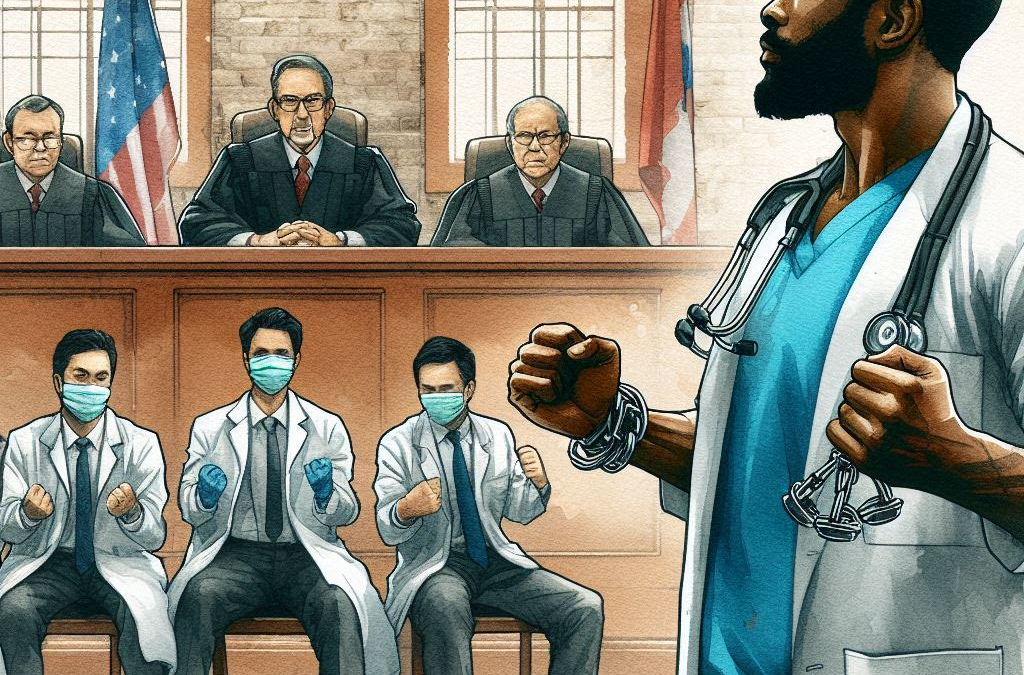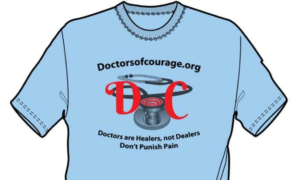In a legal landscape where the judiciary is expected to uphold the law with consistency and integrity, recent events highlight a troubling trend: the lower courts’ apparent disregard for Supreme Court rulings. This phenomenon is vividly illustrated in the cases stemming from the landmark decision in Ruan v. United States. Despite the Supreme Court’s clear directives, the lower courts have continued to impose harsh sentences, seemingly rendering the high court’s decisions meaningless. The absurdity of such legal incongruities is exemplified by the contrasting fates of Dr. Michael Fletcher and Dr. Kendall Hansen.
In 2022, the Supreme Court partially overturned the convictions of Dr. John Patrick Couch and Dr. Xiulu Ruan, ruling that prosecutors must prove that a doctor knew their conduct was outside the scope of professional medical practice. This decision was expected to significantly impact similar cases, offering hope to many convicted under the ambiguous standards previously applied.
However, the Supreme Court’s decision did not result in the anticipated relief for Drs. Couch and Ruan. Despite the high court’s ruling, Senior U.S. District Judge Ginny Granade maintained their lengthy prison sentences. This blatant disregard for the Supreme Court’s directives underscores a troubling trend: lower courts snubbing the highest court’s authority, thus undermining the legal system’s integrity.
Dr. Michael Fletcher, an interventional pain medicine specialist from Crestview Hills, Kentucky, faced similar charges. Convicted of illegally prescribing opioids, his case reveals the inconsistencies and apparent disregard for judicial precedent that plague the lower courts. Despite being found guilty of prescribing legal opioids to his patients—a far cry from street corner drug dealing—the severity of his punishment starkly contrasts with that of his colleague, Dr. Kendall Hansen.
Dr. Hansen, indicted alongside Dr. Fletcher, was charged with writing prescriptions for employees and instructing them to give him the pills. Despite the serious nature of these accusations, Dr. Hansen was acquitted in February 2024, while Dr. Fletcher faced conviction. This discrepancy raises critical questions about the application of justice and the influence of legal representation in these cases.
@drleilaissad Replying to @𓆏𓆏𓆏 Gwendolyn✌🏽🍉🌶️ #chronicillness #chronicpain #chronicpainrelief #medicaltrauma #medicalgaslighting #doctors #doctorsoftiktok #pharmacytiktok
One significant factor contributing to Dr. Fletcher’s conviction appears to be the disparity in legal representation. Dr. Hansen’s attorney, Ronald Chapman, had extensive experience in health-related criminal trials, contrasting sharply with Dr. Fletcher’s attorney, who likely lacked documented experience in this specific healthcare field of law. This difference in legal expertise likely played a pivotal role in the divergent outcomes of their cases, highlighting the importance of specialized legal defense in complex medical-legal cases.
The ongoing disregard for Supreme Court rulings by lower courts extends beyond individual cases, reflecting a broader crisis in the judicial system. The refusal to adjust sentences in light of new legal standards, as seen in the cases following Ruan v. United States, suggests a troubling autonomy among lower courts that undermines the consistency and predictability essential to the rule of law.
This not only disrupts the lives of the accused but also propagates a climate of fear among medical professionals, ultimately affecting patient care. The cases of Dr. Michael Fletcher and Dr. Kendall Hansen starkly illustrate the absurdity and injustice that can result when lower courts ignore Supreme Court rulings. The legal system’s integrity depends on the consistent application of law across all judicial levels. The Supreme Court’s decisions should serve as definitive guides for the lower courts, ensuring fairness and uniformity in the administration of justice.
As Dr. Fletcher continues to fight his conviction, his case stands as a poignant reminder of the need for judicial accountability and the protection of medical practitioners from unjust legal persecution. The fight for justice, as highlighted in these cases, is far from over. It is imperative for the legal community and society at large to scrutinize and challenge these judicial inconsistencies to restore faith in our legal system. https://x.com/DrLizaMD/status/1816865615086518506
@drleilaissad Why do we dismiss women’s pain so easily? I am calling on family doctors and gynecologists to provide a small amount of actual pain medication- yes *GASP* a small amount of opioid pain medication to be used for IUD placement and removal. Even women who have just delivered babies think it’s excruciating. Thanks to “The Retrievals” podcast by @NewYorkTimes_official for reminding me about this. And now that i know that my fav tik tok feminist @hope_peddler and fav tik tok addiction medicine doc @Taylor Nichols, MD are friends too, im gonna tag them to get their thoughts too! #feminism #painmanagement #chronicpain #substanceusedisorder #opioidepidemic #gynecology #advocacy #hystericalwoman #familymedicine #patientadvocacy
The Author received an honorable discharge from the U.S. Navy where he utilized regional anesthesia and pain management to treat soldiers injured in combat at Walter Reed Hospital. The Author is passionate about medical research and biotechnological innovation in the fields of 3D printing, tissue engineering and regenerative medicine.


I think they should treat the situation as they dived the cm vaccine.